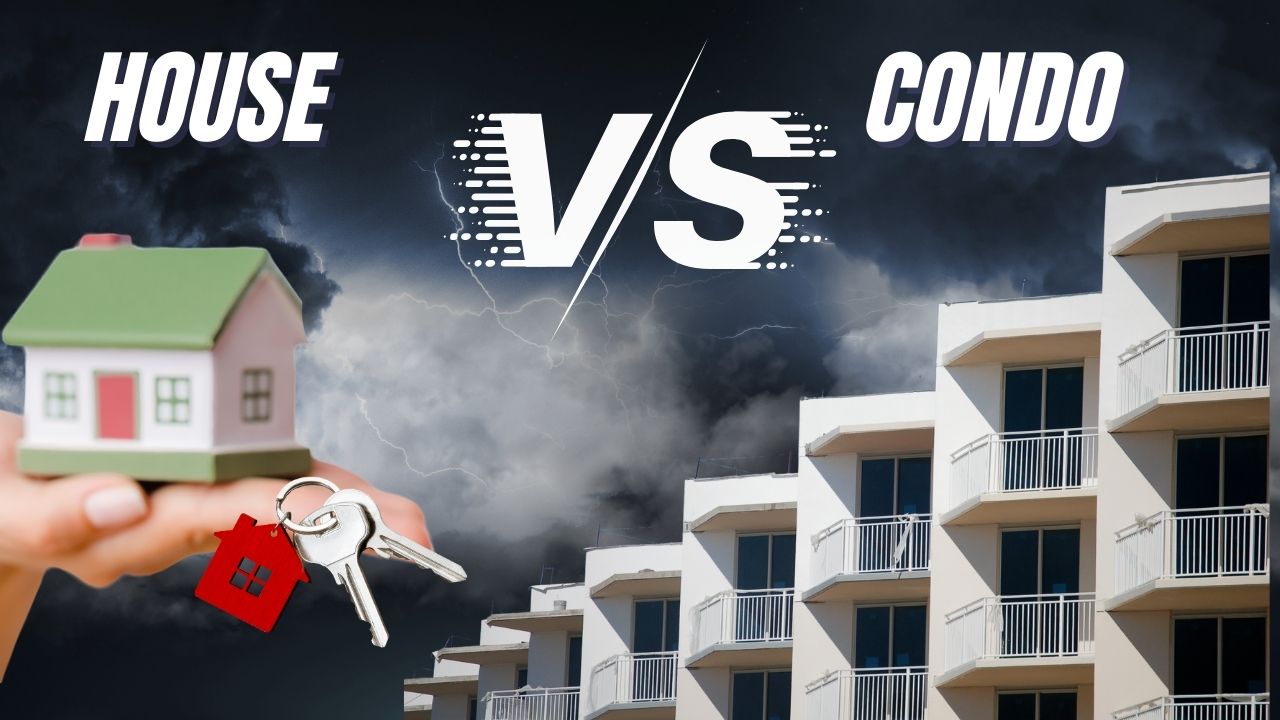 As a first-time homebuyer, one of the biggest decisions you’ll face is whether to buy a cozy condo or invest in a larger home. Both options have their perks, and while condos may initially seem more affordable and convenient, opting for a larger home can offer significant long-term advantages that make it a better investment. Here’s why splurging on a larger home might be the right move for your future.
As a first-time homebuyer, one of the biggest decisions you’ll face is whether to buy a cozy condo or invest in a larger home. Both options have their perks, and while condos may initially seem more affordable and convenient, opting for a larger home can offer significant long-term advantages that make it a better investment. Here’s why splurging on a larger home might be the right move for your future.
1. More Space, More Flexibility
One of the most compelling reasons to choose a larger home over a condo is the space it provides. A condo may feel just right when you’re first starting out, but as your life evolves—whether you’re planning for a family, need a home office, or simply accumulating more belongings—space becomes a premium. A larger home offers flexibility that a condo simply can’t match.
With more bedrooms, larger living areas, and additional storage, a house gives you room to grow. Instead of feeling cramped, you’ll have the space to rearrange your layout or add a new purpose to existing rooms. For instance, a spare bedroom can become a home gym or office, or a basement can be turned into a playroom or entertainment area. This flexibility allows you to adapt your home as your needs change over the years.
Outdoor space is another major perk of owning a larger home. Condos often come with little more than a balcony or small patio, while a house typically includes a yard—ideal for kids, pets, gardening, or simply enjoying the fresh air. Having outdoor space adds to the overall quality of life, giving you room to relax and unwind without leaving home.
2. Increased Privacy
Privacy is another significant factor to consider. In a condo, you’ll likely share walls with neighbors, and communal spaces like hallways, pools, and gyms can feel crowded. For some, this proximity can be frustrating, especially when noise levels are higher than expected or you have little control over who is in your immediate surroundings.
3. Stronger Resale Value
The demand for single-family homes remains steady, as buyers prioritize space and privacy. As more people look for homes that offer flexibility for working from home or raising a family, the resale value of a larger property can rise. On the other hand, condo markets can be more volatile, with prices fluctuating depending on factors like the number of units available or trends in urban living.
By choosing a house, you’re investing in an asset that’s more likely to increase in value over the long term, which can provide financial security for your future.
4. Freedom to Personalize
One of the frustrations of condo living is the limitation on how much you can personalize your space. Condo associations often have strict rules regarding renovations, exterior modifications, and even interior changes. With a larger home, you have the freedom to make your space truly your own. Whether upgrading your kitchen, adding landscaping, or building a backyard deck, you can personalize your home without worrying about rules or restrictions. This creative freedom is a huge draw for homeowners who want their living space to reflect their tastes and lifestyles.
5. Long-Term Financial Benefits
While the upfront cost of a larger home may be higher than a condo, the long-term benefits can far outweigh the initial investment. As your home appreciates, you may be able to leverage that equity for future projects or investments, such as home improvements, education, or even retirement. The financial advantages of owning a larger home make it a smarter long-term choice for many first-time buyers.
While condos offer convenience and affordability, splurging for a larger home can provide the space, privacy, and long-term financial benefits that make it a worthwhile investment. You’ll enjoy the flexibility to grow, the freedom to personalize, and the peace of mind that comes with knowing your home’s value is likely to increase over time. For first-time homebuyers looking to build a strong foundation for the future, a larger home is often the smarter choice.
 Would you feel comfortable living near a cemetery, or does the idea give you pause? For some, it’s no issue, while others might consider it a deal-breaker.
Would you feel comfortable living near a cemetery, or does the idea give you pause? For some, it’s no issue, while others might consider it a deal-breaker. When buying or selling a home, you’ll likely encounter both a home inspection and a home appraisal. While these processes are essential for ensuring a smooth real estate transaction, they serve different purposes and involve unique evaluations. Understanding the differences between a home inspection and a home appraisal can help you navigate the home-buying or selling process more confidently.
When buying or selling a home, you’ll likely encounter both a home inspection and a home appraisal. While these processes are essential for ensuring a smooth real estate transaction, they serve different purposes and involve unique evaluations. Understanding the differences between a home inspection and a home appraisal can help you navigate the home-buying or selling process more confidently. One of the biggest questions future homeowners ask is, “How much do I actually need to save before buying a home?” The answer depends on a few key components, but don’t worry—it’s easier to break down than you might think! Here’s an overview of what you need to save to step into homeownership confidently.
One of the biggest questions future homeowners ask is, “How much do I actually need to save before buying a home?” The answer depends on a few key components, but don’t worry—it’s easier to break down than you might think! Here’s an overview of what you need to save to step into homeownership confidently. When most people think about buying a home, the spring and summer months often come to mind. After all, that’s when the market is buzzing with activity. However, what many don’t realize is that January can be one of the best times to purchase a home. From motivated sellers to financial benefits, buying during the winter months offers several unique advantages for savvy homebuyers.
When most people think about buying a home, the spring and summer months often come to mind. After all, that’s when the market is buzzing with activity. However, what many don’t realize is that January can be one of the best times to purchase a home. From motivated sellers to financial benefits, buying during the winter months offers several unique advantages for savvy homebuyers. As the year comes to a close, it’s the ideal time to take a step back and assess your financial situation, especially if you’re planning to buy real estate in the coming year. Whether you’re a first-time homebuyer, looking for an investment property, or aiming to upgrade, being financially prepared can make all the difference.
As the year comes to a close, it’s the ideal time to take a step back and assess your financial situation, especially if you’re planning to buy real estate in the coming year. Whether you’re a first-time homebuyer, looking for an investment property, or aiming to upgrade, being financially prepared can make all the difference.